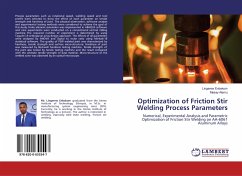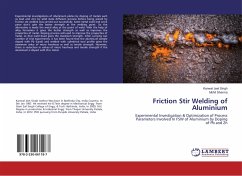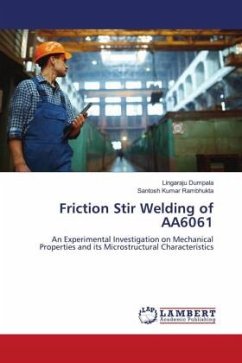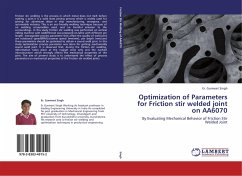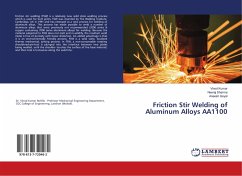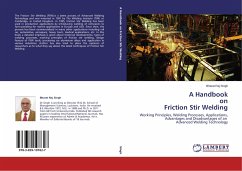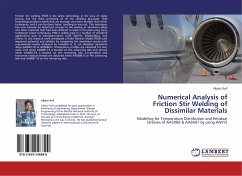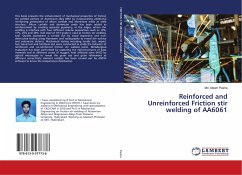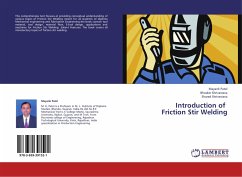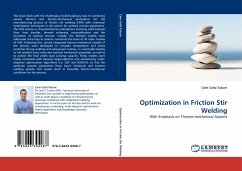
Optimization in Friction Stir Welding
With Emphasis on Thermo-mechanical Aspects
Versandkostenfrei!
Versandfertig in 6-10 Tagen
52,99 €
inkl. MwSt.

PAYBACK Punkte
26 °P sammeln!
This book deals with the challenging multidisciplinary task of combining variant thermal and thermo-mechanical simulations for the manufacturing process of friction stir welding (FSW) with numerical optimization techniques in the search for optimal process parameters. The FSW process is characterized by multiphysics involving solid material flow, heat transfer, thermal softening, recrystallization and the formation of residual stresses. Initially, the thermal models were addressed since they in essence constitute the basis of all other models of FSW. Following this, several integrated thermo-m...
This book deals with the challenging multidisciplinary task of combining variant thermal and thermo-mechanical simulations for the manufacturing process of friction stir welding (FSW) with numerical optimization techniques in the search for optimal process parameters. The FSW process is characterized by multiphysics involving solid material flow, heat transfer, thermal softening, recrystallization and the formation of residual stresses. Initially, the thermal models were addressed since they in essence constitute the basis of all other models of FSW. Following this, several integrated thermo-mechanical models of the process were developed to simulate temperature and stress evolution during welding and subsequent cooling, i.e. eventually leading to the residual stress state and reduced mechanical properties, as well as to predict the final weld's load carrying capacity. These models were finally combined with classical single-objective and evolutionary multi-objective optimizationalgorithms (i.e. SQP and NSGA-II), to find the optimum process parameters (heat input, rotational and traverse welding speeds) that would result in favorable thermo-mechanical conditions for the process.



